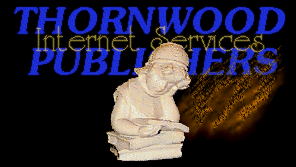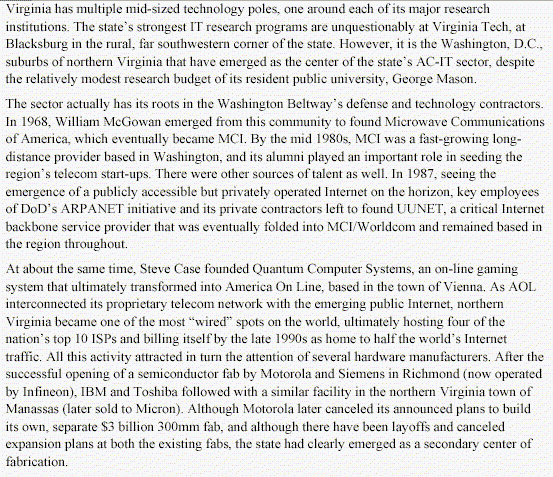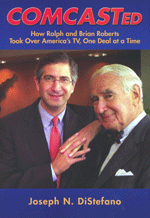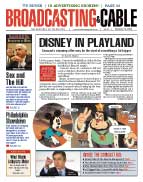 11 Mar 06, Washington Post Slams Comcast's Ethics in Maryland
11 Mar 06, Washington Post Slams Comcast's Ethics in Maryland
[ BLOG09. M O R E on
|
 Both MCI and AOL had leadership with Mississippi Radio backgrounds -- Above Virginia study page reported by Battelle Memorial Institute, near Ohio State in Columbus The Battelle write-up incorrectly identifies McGowan as MCI founder |
Because Comcast chose Tupelo as its start-up city, Foote believes Ralph J. Roberts carefully positioned the company there in the beginning. His son, Brian L. Roberts, Chairman and CEO, writes "Even then, Ralph had big dreams about bringing innovative products to consumers across America." Foote adds, "Roberts may have had regional or national broadband cable network aspirations, but he could have never dreamed of the modern day, international broadband internet"(end 2).
CHOTANK TITLE: Comcast History (November 13, 2008)
At 1:35 on YouTube counter see Tupelo cable truck displaying
Spain's rectangular microwave dish and company contact info.
Then, Ralph Roberts talks on Comcast's innovative cable service.
Narrator reveals, "It all began with one man's dream to bring TV to Tupelo".
Spain's participation as sole owner of Microwave Communications, Inc., Mid-South and partner of Microwave Communications, Inc., Southeast with the Meredith Corporation in the first MCI incarnation came before William G. McGowan was named CEO of the Company. Spain's key role followed his own milestone engineering development and construction of a telecommunication microwave system for Tupelo cable and television broadcasting in 1959. The FCC approved privately-held microwave ownership for corporate communications needs for the first time in that year (end 3), allowing Spain to immediately start legal network transmissions in and out of Tupelo. Was Spain first to provide microwave importation of distant television signals for cable distribution? Probably. This author believes Spain's lead over other inventor/engineers will be proved eventually. Milt Underwood of the Discovery Network, who is a former Teleprompter and Westinghouse employee living in Alabama, confirms for this Chotank.com blog article that Spain's designs of Mississippi microwave systems were the very earliest to use highly reliable integrated circuits in component boards. After building the first system to serve Tupelo in 1959, Spain had expanded to other cities before joining with Jack Goeken to become one of MCI's founders in 1963.
"MCI is moving away from its traditional long-distance voice transmission business into the business of packaging, distributing, and owning digitized content. Its alliance with News Corporation was one step in this direction. MCI recently expressed an interest in purchasing rights to direct-broadcast satellite technology."
Adam L. Gruen, MCI Corporate Historian, 1995
When William McGowan took over from Goeken around 1968, Spain's involvement with MCI continued. Much later in 1993, WorldCom from its Mississippi headquarters, while the company was still using the LDDS Communications name, bought Metromedia, East Rutherford, N.J. In WorldCom information from the period Metromedia is described as a "full-service long distance provider". But, Rupert Murdoch had already bought the heart out of Metromedia to create the Fox Network. The New York Times reported 4 August 1995 that after MCI invested $2 billion in Murdoch's company, the two corporate giants agreed to create and distribute world-class internet content. Journalist Peter Lewis noted in the Times story that Gregory Wester, a computer industry analyst with the Yankee Group in Boston, summed up the corporate strengths: "To be successful in the on-line business, you need to offer Internet access, which is what MCI brings, and you need to have content and strong brand names, which is what Murdoch has." Spain still owned the Microwave Service Company of Mississippi and Florida in 2004, providing over four decades of microwave services to Comcast. The historic Frank Spain microwave agreement with Comcast, which he and Ralph Rogers worked out in 1963 in Memphis, Tennessee, finally withered away in January, 2005.

In September 2005, Garvey Schubert Barer, the important Washington law firm, represented both Frank Spain and MCI. Destined to lose separate corporate identity after a 2005 merger with Verizon, the MCI brand name has disappeared rapidly. The Washington Post reported, 7 January 2006, that Verizon was changing the name of the "MCI Center", a 20,000 seat sports complex in DC, to the "Verizon Center" by March. The "Comcast Center", another high-profile DC-area sports complex at University of Maryland, College Park, is underwritten by a $25,000,000 grant by its namesake and isn't likely to vaporize the way of the "MCI Center".
"The acquisition of MCI -- formerly known as WorldCom -- marks the final chapter for a company that brought competition to the long-distance phone business. The company was ultimately hobbled by the WorldCom scandal and bankruptcy."
Reported by NBC4, Washington, 6 January 2006
Nine years before building a television microwave system for Tupelo, while still part of the RCA/NBC engineering staff that he had joined in 1947, the young Spain helped design and launch for RCA/NBC Television an experimental microwave link between Washington and Philadelphia. Click for Broadcast Pioneer Newsletter article, published in 2011, sharing Philco history of microwave relay links on 240 megahertz which preceded the Washington to Philadelphia relay that Spain described for this Blog09 report. Prior to NBC's development of its own microwave interconnect, the network depended solely on an inferior AT&T leased-line coaxial link between Washington and New York that had to be shared with DuMont Television and a fledging ABC Television network. But, it was to Spain's regret that RCA/NBC dependence on its relay link had been slight. He speculated that Sarnoff considered relations with AT&T too important to challenge its developing microwave monopoly before the FCC and Congress. The young NBC engineer's experimentation with microwave television program transmission for RCA/NBC is even more astonishing when the reader knows that Spain's work had also included participating in the first television programs from The White House, The Capitol, and other D.C. locations. Spain and the other hard-pressed field engineer staffers of WNBW, Washington, supported television network development while often being stretched thin by network programming demands and maintenance on unreliable field equipment. He recalls frequent requests from New York for more Washington television shows to fill out the New York station's schedule. By November 1947, NBC had a live network of four cities: New York, Boston, Philadelphia, and Washington. The Boston service was provided by a new AT&T microwave system. NBC owned and operated both the New York and Washington stations, but AT&T had been first in 1940 to transmit television quality broadband signals by cable from Philadelphia to New York for broadcast on the RCA/NBC station. In an April 1948 article, "Television Networks", Jack F. Underwood reviewed both history and corporate post-war perspectives of AT&T, RCA, and Philco for both cable and radio relay to television stations. Find online the article in The Michigan Technic (Ann Arbor: Volume 66 Issue 4, April 1948), pp 11-31.
Philco history of microwave relay links on 240 megahertz which preceded the Washington to Philadelphia relay that Spain described for this Blog09 report. Prior to NBC's development of its own microwave interconnect, the network depended solely on an inferior AT&T leased-line coaxial link between Washington and New York that had to be shared with DuMont Television and a fledging ABC Television network. But, it was to Spain's regret that RCA/NBC dependence on its relay link had been slight. He speculated that Sarnoff considered relations with AT&T too important to challenge its developing microwave monopoly before the FCC and Congress. The young NBC engineer's experimentation with microwave television program transmission for RCA/NBC is even more astonishing when the reader knows that Spain's work had also included participating in the first television programs from The White House, The Capitol, and other D.C. locations. Spain and the other hard-pressed field engineer staffers of WNBW, Washington, supported television network development while often being stretched thin by network programming demands and maintenance on unreliable field equipment. He recalls frequent requests from New York for more Washington television shows to fill out the New York station's schedule. By November 1947, NBC had a live network of four cities: New York, Boston, Philadelphia, and Washington. The Boston service was provided by a new AT&T microwave system. NBC owned and operated both the New York and Washington stations, but AT&T had been first in 1940 to transmit television quality broadband signals by cable from Philadelphia to New York for broadcast on the RCA/NBC station. In an April 1948 article, "Television Networks", Jack F. Underwood reviewed both history and corporate post-war perspectives of AT&T, RCA, and Philco for both cable and radio relay to television stations. Find online the article in The Michigan Technic (Ann Arbor: Volume 66 Issue 4, April 1948), pp 11-31.
Underwood deals primarily with radio relay of television programs between network production city and television network affiliates locales. But, the endnotes for this Blog09 report on Frank Kyle Spain also addresses the use of radio relay of programs for regular AM & FM affiliate stations. Underwood makes this observation in the article for The Michigan Technic, "RCA and Philco are working on comparable facilities in radio relay field."
"An official Comcast Cable history, written by Comcast's Daniel Aaron, portrays the Company's start-up in Tupelo as the result of a chance 1963 encounter on a Philadelphia street of Comcast's founder with the broker and original owner of the Tupelo franchise." (See Daniel Aaron and David Long, Take the Measure of the Man: An American Success Story in Chapter 11 "The best-laid plans". Multichannel News retitled it "A Chance Encounter Spawns a Cable Giant" when they offered the chapter to readers of their website in 2001.) Foote continued, "My opinion is that Comcast Cable history should recount the company's relationship with Tupelo electronic media especially with Frank Kyle Spain's business interests." It is undisputed that Ralph J. Roberts founded the American-giant cable operator; an aspiring Disney buyer in 2004 (end 4) ; and the 2000+ broadband internet leader Comcast Cable in Tupelo and then developed additional cable services in Laurel-Hattiesburg and in Meridian (all Mississippi). These cities have significant Spain involvement in their media history.
Foote -- who had directed construction of a medical/health interactive system in Southeast Ohio using microwave technology developed by Spain in Washington for WNBW and in Tupelo for WTVA -- said, "Suspenders aside, can Comcast Cable otherwise explain why -- not how -- Roberts selected these Mississippi towns for his pioneer cable efforts such a very long-distance from the Darby, Pennsylvania home of his company? At least one Comcast history has acknowledged that Mississippi was gripped by racial conflicts and segregation disagreements in 1961, 1962, and 1963, some spilling over from Alabama where John Kennedy and George Wallace were locked in challenges with national political implications concerning Alabama's racial policies." During the British Foreign Secretary's visit to Tuscaloosa with Secretary of State Condoleeza Rice, The Sunday Telegraph of London reported, 23 October 2005, that one of Rice's "friends was among four pupils killed in the bombing of a black church in Birmingham, Alabama, in 1963." Roberts' Pioneer line of belts and suspenders for men had been marketed around the country from an administrative base hundreds of miles away from where the genius engineering honor graduate of Mississippi State College was building TV stations, such as WTWV (changed later to WTVA), featuring his own unique engineering designs for program origination and intercity transmission.  But of greatest significance to Comcast historians, such as Joseph N. DiStefano of the Philadelphia Inquirer who is author of Comcasted (published April 2005), should be that Spain started a microwave transmission company in Tupelo right where Comcast first located four years later. Highly-reliable microwave transmission would have been critical to Comcast distribution of cable network programming to local cable systems, such as Tupelo, long before the invention of satellite distribution for television programming feeds. Did Roberts' founding business plan for Comcast demonstrate amazing, far-sightedness in 1963?
But of greatest significance to Comcast historians, such as Joseph N. DiStefano of the Philadelphia Inquirer who is author of Comcasted (published April 2005), should be that Spain started a microwave transmission company in Tupelo right where Comcast first located four years later. Highly-reliable microwave transmission would have been critical to Comcast distribution of cable network programming to local cable systems, such as Tupelo, long before the invention of satellite distribution for television programming feeds. Did Roberts' founding business plan for Comcast demonstrate amazing, far-sightedness in 1963?
Had Roberts been foresighted as Spain when Spain became in 1963 the co-founder of MCI that would grow by 2000 into an expanding, Mississippi-based MCI-WorldCom? Years before Spain's own electronic business
 |
| Loudon County, Virginia 2000+ DC-area quarters for MCI-WorldCom while under construction at 543 acre site |
See Frank Stanton, who, too, received a Ph.D. at Ohio State, introducing the latest CBS Color Television Set prototype in 1950s (the same set that Spain preferred to call "a front loader washer" in a 2005 meeting with Dr. Foote) --
CLICK for Broadcasting & Cable's Anniversary Special Cover featuring Stanton that helps celebrate 75 years of publication in 2006. The photo also appears in Airwaves, Spring/Summer 2007, published by the Library of American Broadcasting Foundation, U-Md, College Park. Donald V. West, president of the Foundation, is a former assistant to CBS President Stanton. Stanton is famous for his leadership of CBS over 25 years after pioneering broadcast program research while completing a Ph.D. in psychology at Ohio State University in the 1930s (end 6). Stanton's doctoral committee chair at the University was FCC-licensed amateur radio "ham".
After first preferring the CBS mechanical system shown on the Broadcasting & Cable's 2006 Supplement Cover and announcing a decision in favor of a mechanical approach, the Commission was forced to reconsider its action and then to postpone a final decision until July 1953. The government "freeze" on new television technology gave RCA time to make additional engineering improvements, especially in the receiver that had been the biggest problem during the first hearings. The electronic color proposal that Spain helped demonstrate eventually became the Commission's first choice for all US TV, whether cable or broadcast service.
"If you've ever wondered why your cable bill goes up every year, why the channels get worse, and why Comcast's Roberts[es] keep getting richer while shareholders tread water, Joe DiStefano's wonderful book COMCASTed is a must read for you. He takes you through the whole Comcast story from stringing cable to trying to string up Disney's Michael Eisner. An eye-opening tale with details and stories that will fry every couch potato." why the channels get worse, and why Comcast's Roberts[es] keep getting richer while shareholders tread water, Joe DiStefano's wonderful book COMCASTed is a must read for you. He takes you through the whole Comcast story from stringing cable to trying to string up Disney's Michael Eisner. An eye-opening tale with details and stories that will fry every couch potato."Andy Kessler, former hedge fund manager and author of Wall Street Meat and Running Money --quoted in Camino Books, Inc., Philadelphia, --Book Catalog for September 2006, Page 10. Chotank.com Reminder: This advertising publication quote is intended to promote book sales for Camino. Dr. Foote first adopted COMCASTed for his UNA Senior Seminar class in fall term 2005. He highly recommends the book and made it required reading again in fall 2007 classes. (OCLC, Dublin, Ohio will give a list of libraries loaning the book in your area. CLICK for Libraries) The Comcast attempt to buy Disney dominates the Broadcasting and Cable (B&C) 2004 magazine cover pictured above. Beginning in fall 2003 when Harry A. Jessell was editor, Broadcasting & Cable provided Dr. Foote's UNA students more than $25,000 of publications (at cover price), helping UNA broadcasting / cable / internet classes maintain precise tracking of Comcast and Disney announcements / activities and developing relations between the two media giants. Foote and Jessell arranged the B&C support while seated together with Don and Carroll Virginia West at the Broadcasting & Cable table honoring Sol Taishoff who was the editor-in-chief of the magazine for 51 years. Don West followed Taishoff as editor-in-chief. During the 2003 broadcasting awards ceremony in New York in the Grand Hyatt, B&C announced gift of the Donald V. West Archive, containing 200,000 photos, to University of Maryland Library, College Park. Gene Jankowski, past president and chairman, CBS Broadcast Group, representing Les Moonves, president of CBS, and Walter Cronkite, CBS news anchor for decades, showed support of West by joining a vigorous applause to the announcement. Three years later West became president of the Library of American Broadcasting Foundation at Maryland. Jessell is member of the 2007-09 Peabody Awards Board, Grady College, University of Georgia. The 25 free, year-round subscriptions for UNA students, sent by Airborne Priority for first year, ended 1 January 2008. (See Endnote 7 for more on Moonves and Roberts.) 
Read letters from Frank Stanton, CBS, and John Macy, CPB, to National Association of Educational Broadcasters (NAEB), praising Chotank developer for journal editing achievements at Ohio State, University of Mississippi, and University of Georgia |
Is it a total concidence as portrayed in Comcast history that the company was founded in the town where a foremost network television developmental/operating engineer was implementing lowcost technologies for local advertising and program production/origination and for intercity importing of broadband TV from ABC, CBS, and NBC that would be absolutely necessary for Comcast's growth and corporate financial success?
Go to BLOG09 Endnotes in New Window
Read Endnote #1 to find how the suicide of
of the primary, FM-sound investor would eventually help speed
Spain home from New York to his adopted Mississippi and thrust him
into roles foretelling changes in telecommunication/cable businesses
| Comments (3) Comments on BLOG09 Article & Endnotes have been closed. |
2/11/09
...very interesting stuff. I didn't know much about Spain. I might quibble with your statement that RCA made FCC shift FM upstairs (I really think it's more complex than that as we say in SOUNS OF CHANGE)...also the seeming oddity of the million-dollar payment to Marion Armstrong after EHA's death...she won the patent case and that's where the payment came from. chs
| Chris Sterling, professor, George Washington University, is author with Michael Keith of Sounds of Change: FM Broadcasting in America (Chapel Hill: University of North Carolina Press, 2008), and he is the editor of Military Communications: From Ancient Times to the 21st Century (Santa Barbara, Denver, and Oxford, England: ABC-CLIO, 2008). |
3/25/10
...businessweek.com has a Bloomberg article today that reveals sexy and qualified additions to the 2010 FCC administration. Rear Admiral James Barnett is the new head of Public Safety and Homeland Security Bureau. Barnett, an attorney from Tupelo, Mississippi, is quoted by Bloomberg. aef
| Avon Edward Foote, PhD, is professor emeritus, University of North Alabama. He has researched and reported the Comcast startup in Tupelo since 2005. |
10/28/10
...As Tupelo attorney Barnett represented the Mississippi school boards of Tupelo, Aberdeen, and Tishomingo County. Barnett is married to Celia Grisham, a Foote/Foot descendant from Iuka. Celia is the daughter of Lowell Grisham and Jo Ann Reid Grisham, and grew up in Oxford, Mississippi. The Doctors Foote/Foot attend Trinity Episcopal Church, Florence, Alabama, with Jack (Buddy) Reid, the uncle of Celia Grisham Barnett.
See Navy info on Jamie Barnett at:
http://www.navy.mil/navydata/bios/navybio.asp?bioID=37
You can read Barnett's personal statement on his Navy service before and after spending several years as Tupelo, Mississippi attorney. It is part of his presentation of an FCC proposal for a national broadband emergency system (ERIC). Click for remarks to Police Executive Research Forum.
...Michael Socolow has the most significant article on the research contributions of Frank Stanton, Ohio State graduate. "The Behaviorist in the Boardroom: The Research of Frank Stanton, Ph.D." appears in Journal of Broadcasting and Electronic Media, Volume 54 (December 2008). I discovered the documentation of Stanton's development of the rating services' audience meter in field tests in Columbus, Ohio, while on fourth floor of Gorgas Library, University of Alabama, Tuscaloosa as I waited on Dr. Dottie. Yesterday, she attended meeting on University of Alabama system, new doctor of nursing degree in College of Nursing building. aef
| Avon Edward Foote, PhD, is professor emeritus, University of North Alabama. He has researched and reported the Comcast startup in Tupelo since 2005. |

Buttons above in THORNWOOD logo are Clickable
Copyright (c) 2005-2010
Avon Edward Foote
Chotank@aol.com and aefoote@una.edu
Reviewed . Revised . Refreshed 20 December 2009 Our 15th Year
